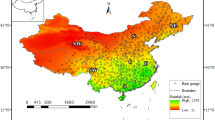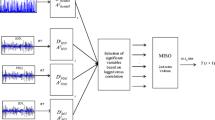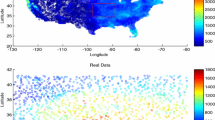Abstract.
This paper deals with the problem of spatial data mapping. A new method based on wavelet interpolation and geostatistical prediction (kriging) is proposed. The method – wavelet analysis residual kriging (WARK) – is developed in order to assess the problems rising for highly variable data in presence of spatial trends. In these cases stationary prediction models have very limited application. Wavelet analysis is used to model large-scale structures and kriging of the remaining residuals focuses on small-scale peculiarities. WARK is able to model spatial pattern which features multiscale structure. In the present work WARK is applied to the rainfall data and the results of validation are compared with the ones obtained from neural network residual kriging (NNRK). NNRK is also a residual-based method, which uses artificial neural network to model large-scale non-linear trends. The comparison of the results demonstrates the high quality performance of WARK in predicting hot spots, reproducing global statistical characteristics of the distribution and spatial correlation structure.
Similar content being viewed by others
Author information
Authors and Affiliations
Rights and permissions
About this article
Cite this article
Demyanov, V., Soltani, S., Kanevski, M. et al. Wavelet analysis residual kriging vs. neural network residual kriging. Stochastic Environmental Research and Risk Assessment 15, 18–32 (2001). https://doi.org/10.1007/s004770000056
Issue Date:
DOI: https://doi.org/10.1007/s004770000056




